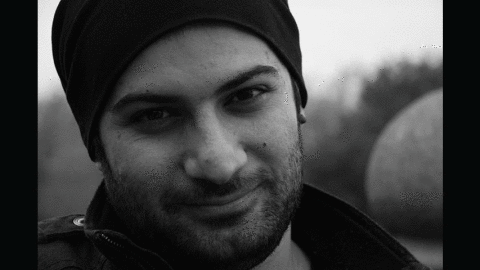In a recent article on SyriaUntold we sampled the emergence of a new Syrian memory of the pre-revolution life in the country. Through the many anecdotes and snippets of memories published by individuals who experienced these decades, but had stayed silent for many years out of fear, we proposed that a new collective memory of pre-revolution Syria was being spontaneously curated and rediscovered by the crowd. This process constitutes a sort of crowdsourced memory of Syria’s recent past. In this follow-up, we ask several Syrian intellectuals to problematize and critique this important process in an effort to assess its flaws as well as its potential.
Syrian opposition member, and former detainee, Muhammad al-Saleh, admits that the revolution was a major catalyst in the movement to share and curate these memories. He believes that it is of great importance to learn from past lessons, which can only happen if they became public and open for debate. But he ends with a word of caution: “This is a monumental effort. To gather, document and fact-check all these stories is a truly overwhelming task. One has to be extremely wary of political and ideological biases that could result in two completely different recounts of the same event.”
This process of sourcing and curating this information is very much related to the informal reputations attained by writers, according to al-Saleh. But it is also important that many people make the effort to independently verify the veracity of it, for that kind of crowd effort is what really establishes fact from fiction, or even slight embellishments.
Faraj Beirakdar, a poet and a former detainee himself, shares al-Saleh’s view on the importance of this budding movement. Beirakdar says that the revolution “opened the door for reestablishing modern Syrian history and for re-reading, in a different light, what was written before the revolution.” He gives his own books and writings as an example of this renewed interest: “Some of the books that I wrote in prison are being translated, and reprinted as we speak.” This is, according to Beirakdar, a clear indication that the world at-large, as well as Syrians themselves, see the value of re-examining the past decades in view of the Syrian revolution.
Beirakdar believes that the age of state-monopoly over the media, and the production of information in Syria is over. And that new information projects like SyriaUntold and Kish Malek (Check Mate), as well as other diverse forms of cultural expression that have bloomed since the revolution, like citizen journalism, digital art and music, have opened the door wide open on the dismantling of Syrian’s official, and thus highly censored, history that was perpetuated by the Syrian regime.

Dara Abdallah, a poet and writer, believes that curating the scatter of anecdotes published everyday on social media into a serious historical narrative is an important effort. He also goes as far as proposing the development of a shared methodology for this process. One of his proposals is to create a central space—a forum or Facebook page—where specific historical events are debated, and personal recollections are provided in order to build a more encompassing narrative as well as studying how attitudes towards these events may have changed over time or according to individuals.
Abdallah’s comments reflect an attempt at tackling this process in a scientific manner, but they also, like those of other interviewees, hint at the enormity of the task ahead. Nevertheless, the general view is that this has been an important and organic, if inevitable, development, and one which promises to shape how we envision the future of the country, as much as its past, in a radical and profound way.



